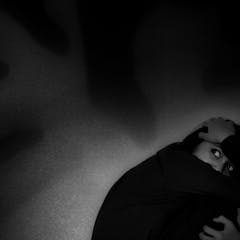
Articles on Obsessive-compulsive disorder
Displaying all articles

People with OCD have a 31% increased risk of death from natural causes and a 230% increased risk of death from unnatural causes compared to those without the disorder.

Research decisions made by clinical psychologists in the 1970s can help explain why so many people, myself included, struggle to make sense of our obsessional thoughts.

Completely new forms of drugs may soon be available to treat obsessive-compulsive disorder.

Deep brain stimulation and trasncranial magnetic stimulation treat mental illness by sending electrical currents into parts of the brain. Every new patient provides researchers with a wealth of information. Listen to The Conversation Weekly podcast.

This rare procedure is offered by only a handful of centers in the US and around the world and should be used only when less invasive treatment options for OCD have been tried.

Early reports suggested an apparent increase in OCD relapse rates and symptom severity during the pandemic. But a year on, we’re learning this may not be the case.

Physical hoarding has been studied for decades - but now, new forms of digital hoarding are emerging.

Behaviors that would have been seen as pathological a few months ago are now applauded as adaptive and resourceful. Where do doctors draw the line?

Particularly for people with social anxiety, the prospect of reconnecting with the outside world could be daunting. But there are things you can do to make the transition a little easier.

Exercise addiction describes an obsessive or compulsive need to exercise – even when you’re injured.

Technology could be a promising alternative to traditional therapy.

We manage our fear of death by creating a sense of permanence and meaning in life. But for some people, death anxiety results in pathological coping mechanisms, such as being afraid of spiders.

While the global health community has made mental healthcare a priority, South Africa is not following suite. The impact is felt most acutely by poor people suffering from mental health disorders.

Saying you’re ‘a little bit OCD’ isn’t helpful, but neither is denying the experiences we share.

There is hope that new drugs can be created to treat anxiety disorders after seven new genes were linked to these diseases.

At a recent talk I gave as a Sheffield NeuroGirl, a group of three female PhD students who aim to bring interesting and exciting research on the brain to the public, I carried out a little experiment…

Obsessive-compulsive disorder (OCD) is an anxiety-related mental condition that affects 1-2% of the population. It is severely debilitating and can strike anyone regardless of age, gender and cultural…

A new study of brain activity in patients with hoarding disorder has found they exhibit abnormal activity in regions of their brain when deciding whether to keep or discard things. The study findings…
